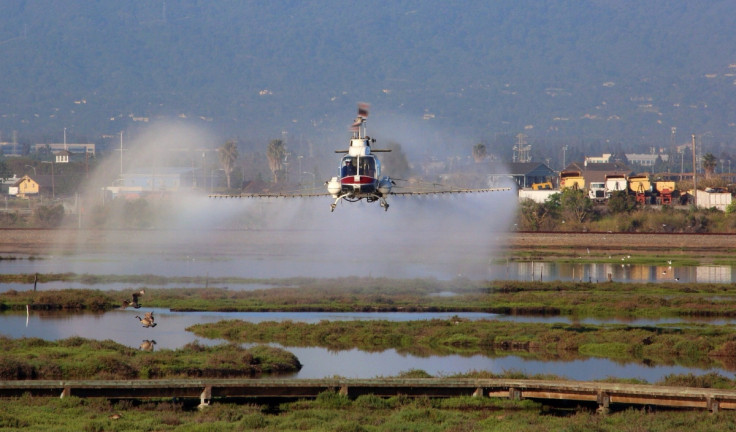Pesticides spread by airplane linked to 25% increase in autism risk

Pesticides spread by aeroplanes have been linked to a 25% increase in autism and developmental delays in children living nearby. Researchers say that while their findings should not be cause for alarm, pregnant women and children should avoid being outside during and shortly after the aerial dispersal of pesticides.
The research, presented at the Paediatric Academic Societies 2016 Meeting, builds on a 2014 study that found a link between pesticides and autism. Previous findings indicated pregnant women living within 1.5km of agricultural pesticide application had a 60% increased risk of their child being diagnosed with autism.
Steven Hicks, lead author of the latest study – Aerial Pesticide Exposure Increases the Risk of Developmental Delay and Autism Spectrum Disorder – told IBTimes UK: "That study showed increased autism/developmental delay risk with specific pesticide types and during periods of vulnerability [e.g. 3rd trimester of pregnancy]. This study [also] suggests the manner in which... pesticides are applied might also affect the risk of autism and developmental delay."
In the latest study, scientists investigated if the method of pesticide dispersal was related to autism rates. They looked at a region of Central New York where officials had used aeroplanes to spray pesticides across the land every summer since 2003. "In contrast, surrounding areas are exposed to standard methods of pesticide application, such as controlled droplet application, by commercial applicators," they study said.
Too preliminary to cause alarm
Their findings showed children living in zip codes where aerial pesticides were used were 25% more likely to have autism or developmental delay, compared to children in areas where other dispersal methods were employed.
Hicks, from Pennsylvania State University, said the findings indicate the way pesticides are distributed could impact autism and developmental delays. However, he also said the study is observational and does not establish cause: "This study is too preliminary to cause alarm, but highlights an area that deserves some more research and attention.
"Communities that use these spraying methods might take steps to insure residents are receiving warnings about spraying events and assess whether they are following recommendations (i.e. covering gardens, keeping children indoors during and shortly after spraying)."
"I would recommend that pregnant women and children not be outdoors during and shortly after periods of aerial pesticide application [the department of health already issues these guidelines]. There is not enough evidence to suggest that pregnant women should move from these areas during their entire pregnancy."
He said the next steps of the research will be to see if the same increase is observed in other areas where aeroplane spraying is used. "[After that] we would look in the blood/urine of children with autism or developmental delay in those areas to see if they have increased pesticide metabolites. This would begin to provide some causational evidence."
More from IBTimes
© Copyright IBTimes 2025. All rights reserved.






















